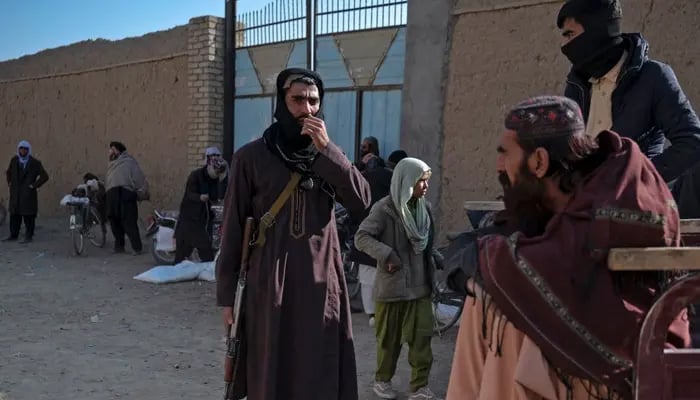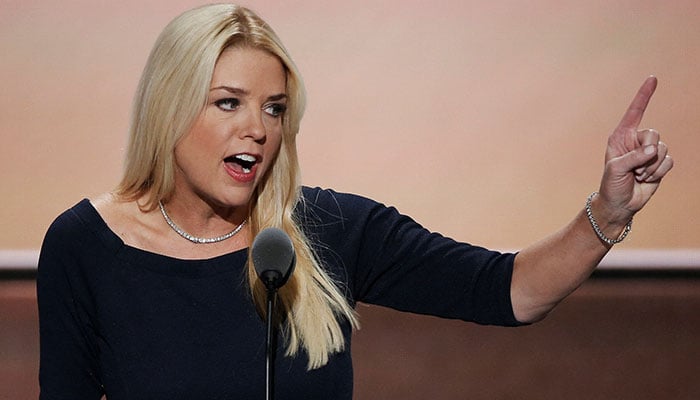

Since the start of the Israel-Hamas war on Oct. 7 last year, several countries have announced suspensions or restrictions on arms exports to Israel.
The UK became the latest to join this group after announcing the suspension of some arms exports on Monday.
The international community's response has varied, with some countries imposing full bans, others implementing partial restrictions, and yet others facing criticism for continuing arms sales.
While UN experts say the transfer of weapons to Israel may constitute serious violations of human rights and international humanitarian law as well as state complicity in international crimes, not all countries have responded to these concerns.
Anadolu has compiled the latest information on the situation, outlining the global stance on arms exports to Israel and focusing on the degrees of suspension, ongoing criticisms, and calls for action in nations where no suspensions have been implemented.
Countries fully suspending arms exports
Canada announced a complete ban on all arms shipments to Israel in March. Foreign Affairs Minister Melanie Joly said the decision followed a parliamentary motion that passed with a significant majority.
In contrast to her statement, some reports suggested that Canada implemented a “temporary pause in non-lethal military exports.” The Canadian government also said that existing permits would not be canceled.
In Italy in January, responding to the leader of the main opposition Democratic Party (PD), Deputy Prime Minister and Foreign Minister Antonio Tajani said: "We decided not to send more weapons to Israel as of Oct. 7, so there is no need to discuss this issue."
In Spain, Foreign Minister Jose Manuel Albares said in January that the country had ceased arms sales to Israel since Oct. 7. In May, it declared a prohibition on vessels transporting weapons to Israel from docking at Spanish ports.
Partial suspensions, case-by-case assessments
The UK suspended 30 out of 350 arms export licenses to Israel after a review concluded that there was a "clear risk" of these arms being used in ways that could breach international law. Foreign Secretary David Lammy emphasized the legal obligation to review export licenses in light of the ongoing conflict.
Belgium's response has been regionally driven, with the Brussels-Capital Region and the French-speaking Walloon Region both imposing bans on military exports to Israel. The Walloon Region also suspended two licenses given to the company PB Clermont for ammunition exports to Israel, citing the International Court of Justice's provisional ruling on Israel and the worsening humanitarian situation in Gaza.
Denmark announced a "very restrictive approach" to arms exports to Israel, implementing case-by-case assessments considering the "disastrous consequences" of the conflict in Gaza. The Danish government has pledged to apply criteria based on the UN Arms Trade Treaty and European Union rules.
The Netherlands has also adopted a partial suspension following a Dutch court ruling that ordered the government to stop delivering F-35 fighter jet parts to Israel. The court's decision came in response to an appeal by human rights organizations which argued that these supplies contributed to violations of international law.
Although there was no nationwide ban by Japan, Japanese firm Itochu Corporation revealed on Feb. 5 its decision to terminate its collaboration with Israeli defense contractor Elbit Systems by the end of February. The country often sees protesters calling on the government to stop engaging with Israeli defense companies.
Future suspensions, calls to governments
A petition has been filed in a top Indian court that seeks a directive to halt licenses for Indian firms exporting weapons to Israel. The petition argues that India is bound by international laws and treaties that prohibit supplying arms to states accused of war crimes.
There have also been calls by the international community for governments to end arms deals with Israel.
In Australia, a lawmaker urged the government to cease all military exports, accusing it of complicity in the genocide of Palestinians.
Similarly, Belgium's Minister of Development, Caroline Gennez, called on the EU to halt arms exports to Israel and other conflict zones in the Middle East.
A group of more than 30 non-governmental organizations has urged the German government to immediately stop arms exports to Israel, citing the ongoing humanitarian crisis in Gaza. Legal action has also been taken in Germany, with human rights lawyers filing a lawsuit to suspend export licenses for arms shipments to Israel, although media reports suggest a Berlin court dismissed the motion.
The International Court of Justice (ICJ) has begun hearings on a case brought by Nicaragua against Germany, accusing Berlin of facilitating genocide in Gaza through its support of Israel.
In the US, eight senators, including Independent Senator Bernie Sanders, sent a letter to President Joe Biden, urging him to stop supplying weapons to Israel, which interferes with US humanitarian assistance.
Despite official suspensions, reports suggest that some countries continue to supply arms to Israel through third parties.
For example, some reports suggest that private British companies continue to sell weapons to Israel. Italy and Norway have faced similar accusations, with reports indicating that arms and ammunition continue to reach Israel despite official bans. Despite Norwegian law prohibiting arms sales to any country at war, media reports have said that Israel continues to procure weapons produced at a US subsidiary of a defense company in which Oslo has a 50% stake.
Israel has continued its brutal offensive on the Gaza Strip since an Oct. 7 attack last year by the Palestinian group Hamas, despite a UN Security Council resolution demanding an immediate cease-fire.
More than 40,800 Palestinians, mostly women and children, have since been killed and nearly 94,300 others injured, according to local health authorities.











